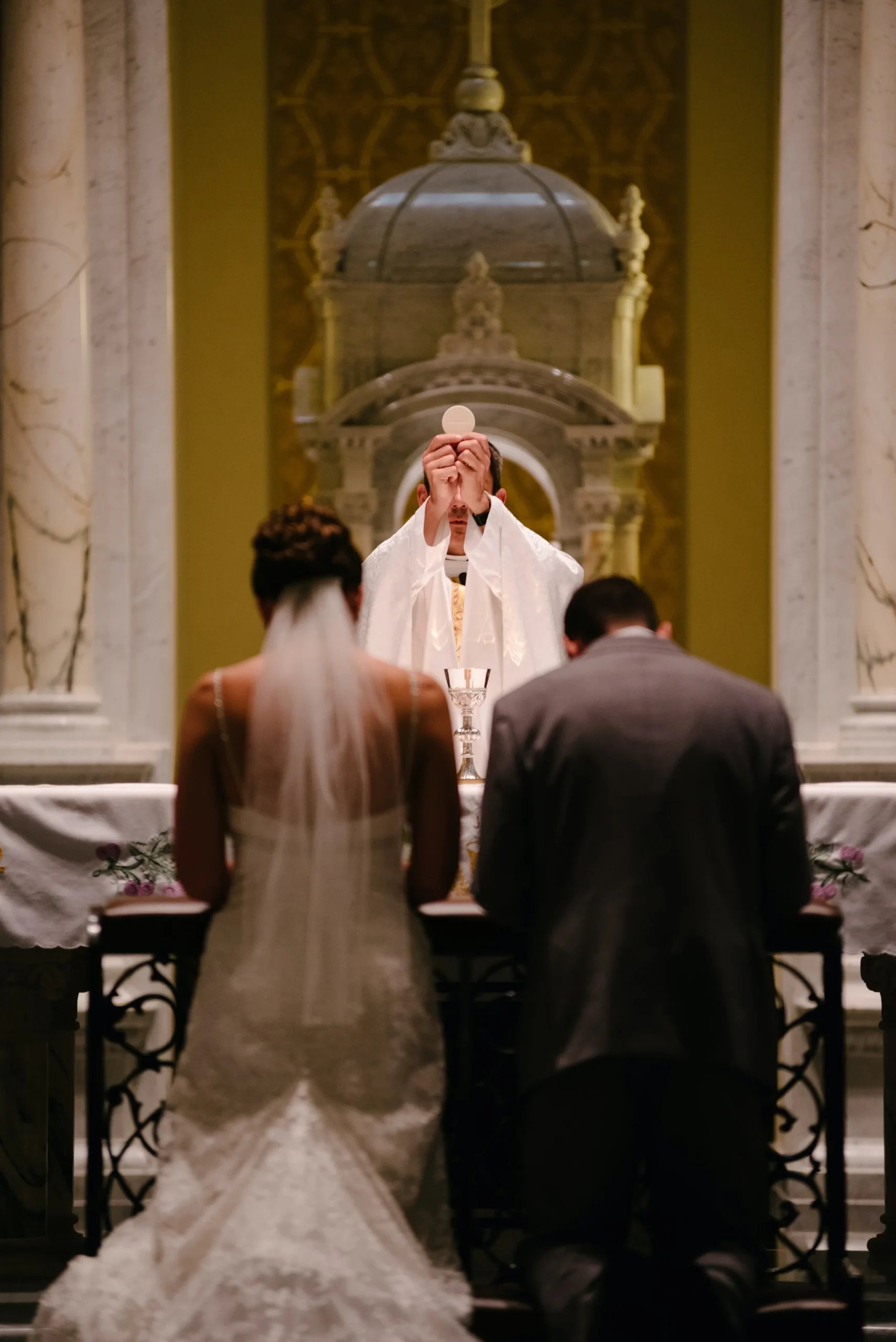The Sacraments of Vocation
Called to Serve, Bound by LoveHoly Orders and Matrimony
In the Catholic Church, the sacraments of vocation refer to the two sacraments that are specifically oriented toward dedicating one’s life to a particular calling or state of service within the Church: Holy Orders and Matrimony. These sacraments are considered to confer a special mission or role, equipping individuals with the grace needed to live out their vocation in service to God and the community.

Holy Orders
Definition: Holy Orders is the sacrament through which men are ordained as deacons, priests, or bishops to serve the Church in a ministerial capacity.
Purpose: It consecrates individuals to carry out sacred duties, such as preaching the Gospel, administering sacraments, and shepherding the faithful. The sacrament imparts a permanent spiritual character, marking the recipient as configured to Christ in a unique way for service.
Levels of Ordination
- Deacon: Assists in liturgical celebrations, preaches, and serves in charitable ministries.
- Priest: Presides over the Eucharist, administers most sacraments, and leads parishes.
- Bishop: Holds the fullness of the sacrament, overseeing dioceses and ensuring the Church’s teachings and mission are upheld.
Scriptural Basis: Rooted in Christ’s commissioning of the Apostles (e.g., John 20:21-23, Matthew 28:19-20).
Who Receives It: Men who are called by God, discerned by the Church, and meet the requirements (celibacy for Latin Rite priests, theological formation, etc.).
Grace Conferred: Provides spiritual strength and authority to fulfill ministerial roles, acting in persona Christi (in the person of Christ).
Matrimony
Matrimony is the sacrament in which a man and a woman enter a lifelong covenant of love, forming a partnership ordered toward their mutual salvation and the procreation and education of children.
Purpose: It sanctifies the marital union, making it a visible sign of Christ’s love for the Church (Ephesians 5:25-32). The couple becomes a “domestic church,” fostering faith and charity.
Key Elements:
- Mutual Consent: Freely given by both spouses.
- Permanence: Indissoluble, reflecting God’s faithful love.
- Openness to Children: Ordered toward procreation, though not every marriage must result in children.
Scriptural Basis: Grounded in God’s creation of marriage (Genesis 2:18-24) and Christ’s elevation of it to a sacrament (e.g., at the wedding at Cana, John 2:1-11).
Who Receives It: Baptized Catholics (or one Catholic and a baptized non-Catholic with dispensation) who freely choose to marry and meet canonical requirements.
Grace Conferred: Strengthens the couple to live out their commitment faithfully, support each other spiritually, and raise children in the faith.
